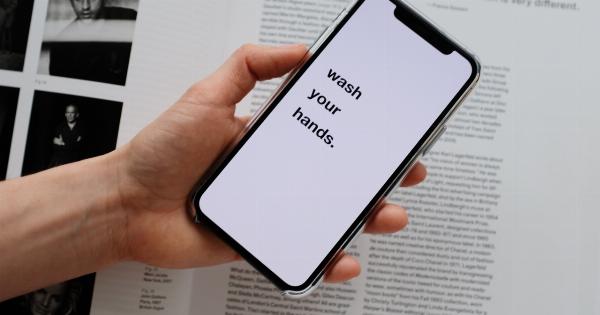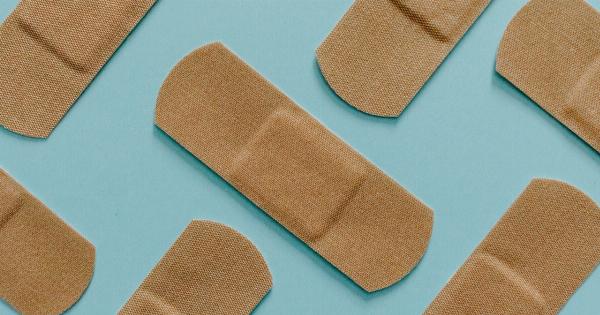In today’s digital age, our mobile devices have become an inseparable part of our lives.
From waking up to the sound of an alarm on our smartphones to falling asleep scrolling through social media feeds, our dependence on mobile devices has reached unprecedented levels. While mobile technology has undoubtedly revolutionized the way we connect, work, and entertain ourselves, it has also given rise to a new phenomenon – feeling lost without our mobiles.
This article delves into the consequences of mobile dependency, offers insights on finding a healthy balance, and provides practical tips to reduce reliance on our devices.
The Growing Dependency
Our mobile devices have transformed from mere communication tools to multi-functional devices that serve various purposes in our daily lives.
They allow us to make calls, send messages, browse the internet, access social media, take photos, play games, manage our schedules, and much more. With such a wide range of capabilities, our mobiles have become our go-to devices for almost everything.
This growing dependency on mobiles has both positive and negative implications. On one hand, mobile technology has revolutionized industries, made information accessible at our fingertips, and enhanced communication.
On the other hand, this dependency can be emotionally and psychologically draining, leading to feelings of anxiety, restlessness, and FOMO (Fear of Missing Out).
The Consequences of Mobile Dependency
Feeling lost without our mobiles can have significant consequences on various aspects of our lives:.
1. Social Relationships
Constantly checking our mobile devices for updates, notifications, or messages can distract us from meaningful interactions and negatively impact our relationships.
It can create a sense of disconnection from the present moment and lead to feelings of isolation in social settings.
2. Productivity and Focus
Your mobile device can be a double-edged sword when it comes to productivity. While it allows us to access useful apps and tools, it also provides ample distractions.
Constant notifications, social media feeds, and addictive apps can severely impact our ability to concentrate, hindering our productivity and efficiency.
3. Sleep Quality
The blue light emitted by mobile screens interferes with the production of melatonin, a hormone that regulates sleep. Overexposure to mobile screens before bed can disrupt sleep patterns and contribute to poor sleep quality.
Not only does this impair our overall well-being, but it also exacerbates the feeling of dependency on our devices.
4. Emotional Well-being
Our mobile devices offer a gateway to a world that is carefully curated and edited. Scrolling through social media feeds often leads to comparisons, negative self-perception, and a constant need for validation.
This constant exposure to highlight reels can take a toll on our self-esteem and contribute to feelings of inadequacy, anxiety, and depression.
5. Physical Health
Prolonged use of mobile devices often leads to poor posture, eyestrain, and sedentary behavior. The constant hunching over screens and minimal physical activity can result in musculoskeletal issues, weight gain, and decreased overall fitness levels.
These physical health concerns further exacerbate the negative impact on our mental well-being.
Finding Balance
It is essential to find a balance between our digital lives and the real world. Here are some tips to combat mobile dependency:.
1. Set Boundaries
Establish specific boundaries for mobile device usage. Designate technology-free zones or times, such as during meals, family gatherings, or before bedtime.
By creating these boundaries, you can prioritize real-life experiences and strengthen relationships.
2. Digital Detox
Regularly take breaks from your mobile device for a day, a weekend, or even a week.
Disconnecting from the virtual world allows you to recharge, reconnect with the present moment, and gain a fresh perspective on how you use technology in your daily life.
3. Turn Off Notifications
Constant notifications can create a sense of urgency and distract us from important tasks or meaningful moments. Turn off unnecessary notifications or customize them to receive only the essential ones.
This way, you regain control over your attention and reduce the temptation to constantly check your device.
4. Practice Mindfulness
Engage in mindful practices that help you stay present and reduce the urge to reach for your mobile device.
Meditation, deep breathing exercises, or engaging in activities that promote mindfulness – such as yoga, gardening, or painting – can divert your attention away from your phone and provide a sense of calmness and clarity.
5. Establish Tech-Free Evening Routine
Create an evening routine that excludes mobile devices at least one hour before bed. Engage in relaxing activities like reading a book, taking a warm bath, or engaging in light stretching.
This helps signal to the brain and body that it’s time to wind down and promotes better sleep quality.
6. Find Alternative Hobbies
Explore activities that don’t involve screens or technology, such as outdoor sports, painting, cooking, or learning a musical instrument.
Diversifying your hobbies and interests helps reduce dependency on your mobile device for entertainment and boosts overall well-being.
7. Practice Digital Minimalism
Adopt a digital minimalism approach by decluttering your digital life. Uninstall apps that don’t add value to your life and unsubscribe from unnecessary email lists or notifications.
Focus on quality rather than quantity when it comes to the apps and digital content you engage with.
8. Engage in Face-to-Face Interactions
Making an effort to connect with friends and loved ones through face-to-face interactions can have a profound impact on your overall well-being.
Plan outings, dinners, or small gatherings where mobile devices are kept aside, allowing for genuine connections and meaningful conversations.
9. Create Real-Life Experiences
Instead of constantly documenting and sharing every moment on social media, focus on creating real-life experiences. Engage fully in activities and events without the constant urge to capture them digitally.
By doing so, you can immerse yourself in the present moment and savor the memories without the need for constant validation online.
10. Seek Support
If you find it challenging to reduce mobile dependency on your own, seek support from friends, family, or even professional guidance.
Join support groups or workshops that focus on digital wellness to connect with others who are also working towards finding a healthy balance with their devices.
Conclusion
While our mobile devices have undoubtedly transformed various aspects of our lives, it is essential to acknowledge and address the potential consequences of feeling lost without them.
By implementing the tips mentioned above and finding a healthy balance between the virtual and real world, we can reduce mobile dependency and embrace a more mindful and fulfilling lifestyle.





























